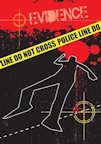It didn’t take seventy-two hours following the publication of a reasoned and respectful JAMA editorial on physicians counseling patients about guns before the self-appointed NRA medical sycophant, Timothy Wheeler, issued his usual pronouncement that doctors represent the enemy when it comes to anything having to do with guns. Actually, I blame the Hospital and Health Networks blog for letting Wheeler crawl out from underneath his proverbial rock, because the truth is that to present him as some kind of medical authority on gun violence is to grant him a level of professional credibility that he doesn’t deserve.
The JAMA editorial, co-authored by two noted gun researchers, Drs. Marion Betz and Garen Wintemute, represents a very important step forward in the discussion about doctors and guns. It follows from a “call to action” issued in April by eight professional medical organizations (plus the American Bar Association) that urged physicians to become more engaged in the issue of gun violence, notwithstanding the heavy-handed effort by the gun lobby to legally de-franchise medical professionals from any connection to this issue at all.
 The NRA has been pissing and moaning about public health and clinical views on gun violence for more than twenty years, and Wheeler is often quoted whenever relevant research is published and, in time-honored fashion, the media needs a comment from the “other side.” I wouldn’t mind if Wheeler had ever conducted any research at all to justify his views on guns, but in fact he is a polemicist pure and simple whose pro-gun opinions come right out of the NRA playbook but are delivered with heightened authority because his name is followed by the initials ‘M.D.’
The NRA has been pissing and moaning about public health and clinical views on gun violence for more than twenty years, and Wheeler is often quoted whenever relevant research is published and, in time-honored fashion, the media needs a comment from the “other side.” I wouldn’t mind if Wheeler had ever conducted any research at all to justify his views on guns, but in fact he is a polemicist pure and simple whose pro-gun opinions come right out of the NRA playbook but are delivered with heightened authority because his name is followed by the initials ‘M.D.’
His latest salvo, written in response to the JAMA editorial, asserts that, “Physicians get no training in firearm mechanics, safety, or tactics in medical school or residency. They simply are not qualified to counsel patients about firearms.” There was a time when physicians didn’t focus on health risks like obesity and tobacco companies routinely showed doctors inhaling a Lucky Strike cigarette in their ads. When the medical community decided that enough research had been conducted to classify obesity and tobacco as risks to health, doctors learned how to counsel patients by asking questions and, based on responses, dispensing appropriate medical advice. Wheeler has never attempted to deny the reams of medical research that shows that the risks of gun ownership far outweigh the gains. Instead, he pompously and falsely accuses physicians of using that research to promote a ‘political’ point of view.
What kind of advice does Wheeler feel is appropriate for doctors to share with patients about guns? You can find the answers in a book he published, Keeping Your Family Safe. Most of the book is devoted to a warmed-over version of NRA training materials that describe how guns work, how they should be cleaned and how they should be stored. Wheeler, incidentally, has absolutely no professional credentials in any of these areas, nor in self-defense laws and self-defense tactics, both of which are covered at length in this book.
I have absolutely no issue with anyone pushing guns as a means of self-defense; what offends me is the notion that guns represent the only or even the most effective way to respond to a possible or actual criminal event. It’s not true, and there is no evidence-based research that proves it to be the case. In fact, the latest research demonstrates that using a gun for self-protection is not only a rare event, but is no more effective than other protective actions, such as running away or calling 911.
After medicine took the lead in anti-smoking campaigns, the end result was that one out of two adults who smoked dropped to one out of five. Imagine what would happen to the gun industry if gun ownership followed a similar trend. If Wheeler wants to save the gun industry, he should stop pretending to be a medical expert and do what he does best, which is to figure out ways to sell guns.

Recent Comments